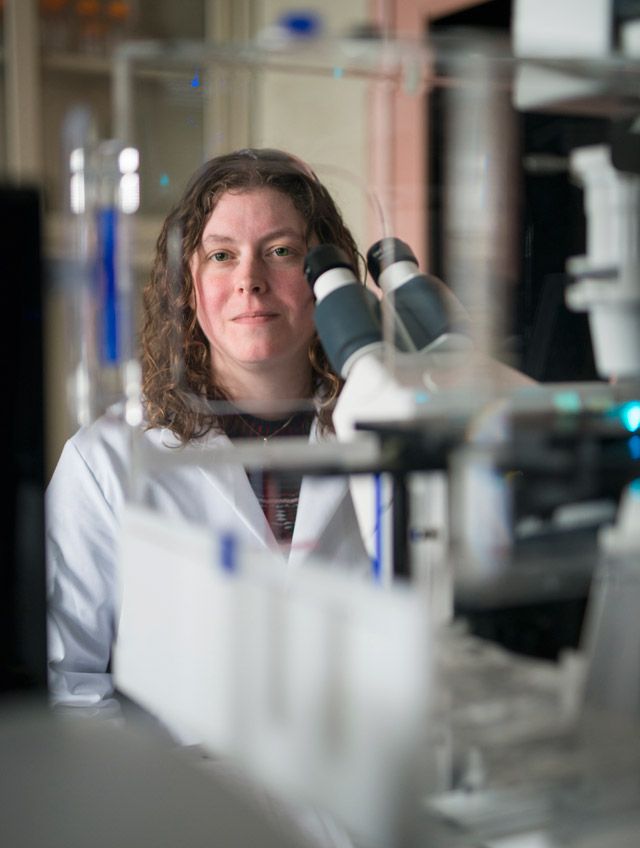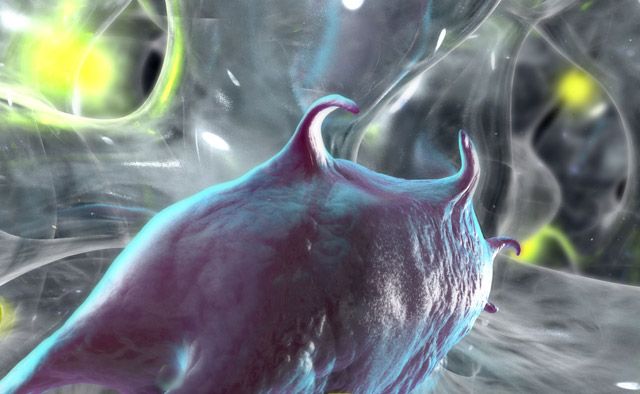Replacing and repairing human tissue is becoming feasible largely due to advances in the use of stem cells. Yet scientists have yet to develop a complete picture of how these cells interact with their environments.
“Cells do not simply reside within a material -- they actively reengineer it,” says Kelly Schultz, P.C. Rossin assistant professor of chemical and biomolecular engineering. “Characterizing how they behave in 3D synthetic material will advance biomaterial design for wound healing, tissue engineering and stem cell expansion.”
Schultz recently received a three-year grant from National Institutes of Health (NIH) to study how cells remodel their natural environment — a crucial step toward engineering cells that can speed through synthetic materials to enable faster wound healing and tissue generation.
Though the research has broad biomaterial design implications, Schultz is specifically focused on engineering mesenchymal stem cells that can mimic a wide array of tissues. These adult stem cells will differentiate into a variety of cell types; Schultz’s goal is to embed them into scaffolds of hydrogel that would then be implanted into a patient.
“For example, a hydrogel scaffold could be used where a piece of bone, too large to heal or regenerate on its own, is missing,” she says. “Inside the scaffold would be stem cells already coaxed into bone cells; the stem cells would reproduce and ‘fill in’ the missing bone. While bone grows around the implant, new tissue is also growing on the inside—speeding the healing process dramatically. And as the bone regenerates its own tissue, the implant disintegrates.”
Hydrogels offer two advantages. They are greater than 90% water and very porous, which allows them to be tuned to change physical properties and mimic anything from bone to fat tissue. Second, an implanted hydrogel can act as a support for native tissue in large wounds.
This September, Schultz was one of 83 researchers honored by the National Academy of Engineering to participate in its prestigious U.S. Frontiers of Engineering symposium; the event recognizes early-career engineers from industry, academia and government making significant impact in their fields.
Read the full story at the Lehigh University News Center.
-Lori Friedman is Director of Media Relations in the Office of Communications and Public Affairs at Lehigh University.


